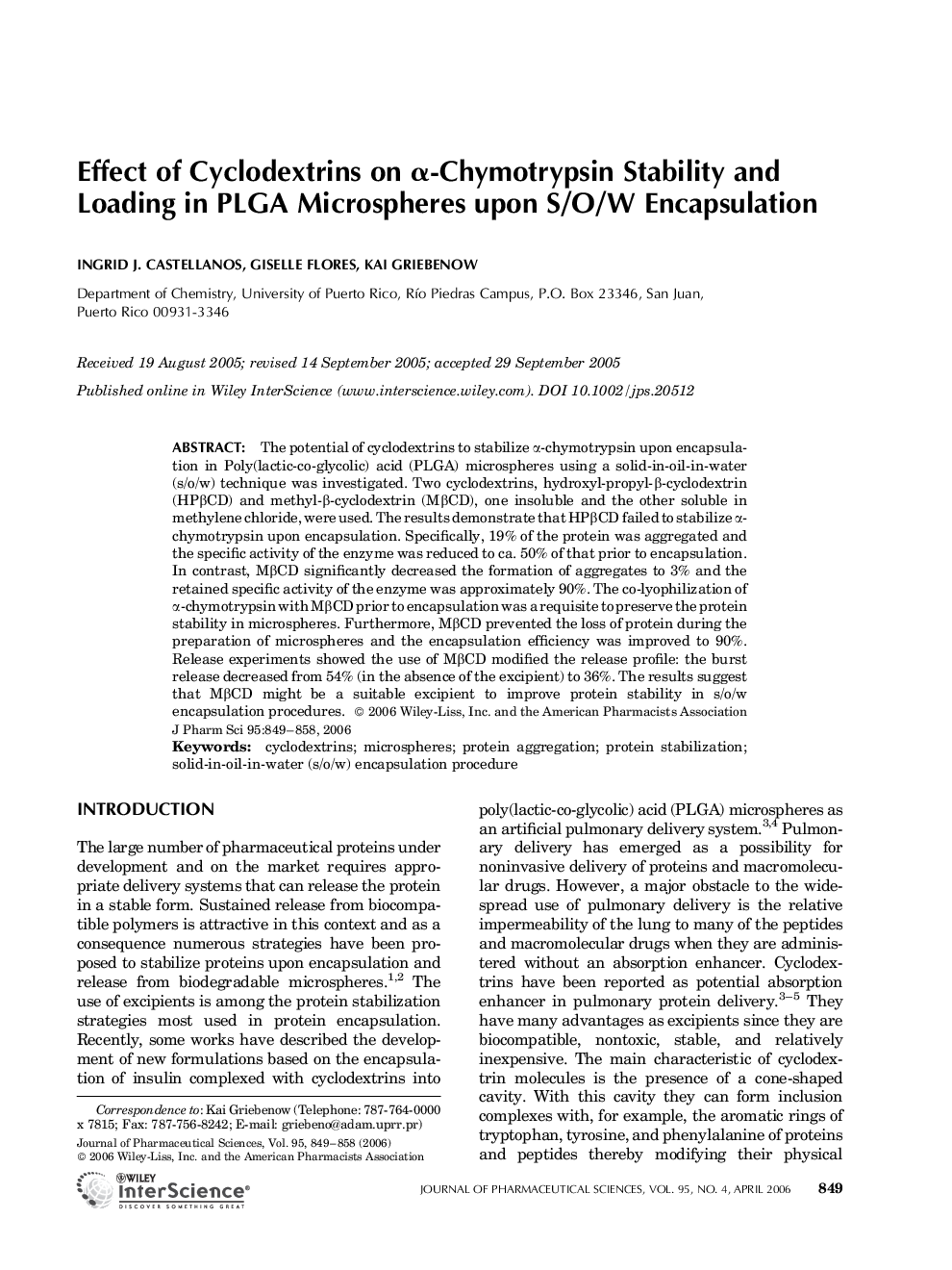| Article ID | Journal | Published Year | Pages | File Type |
|---|---|---|---|---|
| 2488034 | Journal of Pharmaceutical Sciences | 2006 | 10 Pages |
Abstract
The potential of cyclodextrins to stabilize α-chymotrypsin upon encapsulation in Poly(lactic-co-glycolic) acid (PLGA) microspheres using a solid-in-oil-in-water (s/o/w) technique was investigated. Two cyclodextrins, hydroxyl-propyl-β-cyclodextrin (HPβCD) and methyl-β-cyclodextrin (MβCD), one insoluble and the other soluble in methylene chloride, were used. The results demonstrate that HPβCD failed to stabilize α-chymotrypsin upon encapsulation. Specifically, 19% of the protein was aggregated and the specific activity of the enzyme was reduced to ca. 50% of that prior to encapsulation. In contrast, MβCD significantly decreased the formation of aggregates to 3% and the retained specific activity of the enzyme was approximately 90%. The co-lyophilization of α-chymotrypsin with MβCD prior to encapsulation was a requisite to preserve the protein stability in microspheres. Furthermore, MβCD prevented the loss of protein during the preparation of microspheres and the encapsulation efficiency was improved to 90%. Release experiments showed the use of MβCD modified the release profile: the burst release decreased from 54% (in the absence of the excipient) to 36%. The results suggest that MβCD might be a suitable excipient to improve protein stability in s/o/w encapsulation procedures.
Related Topics
Health Sciences
Pharmacology, Toxicology and Pharmaceutical Science
Drug Discovery
Authors
Ingrid J. Castellanos, Giselle Flores, Kai Griebenow,
